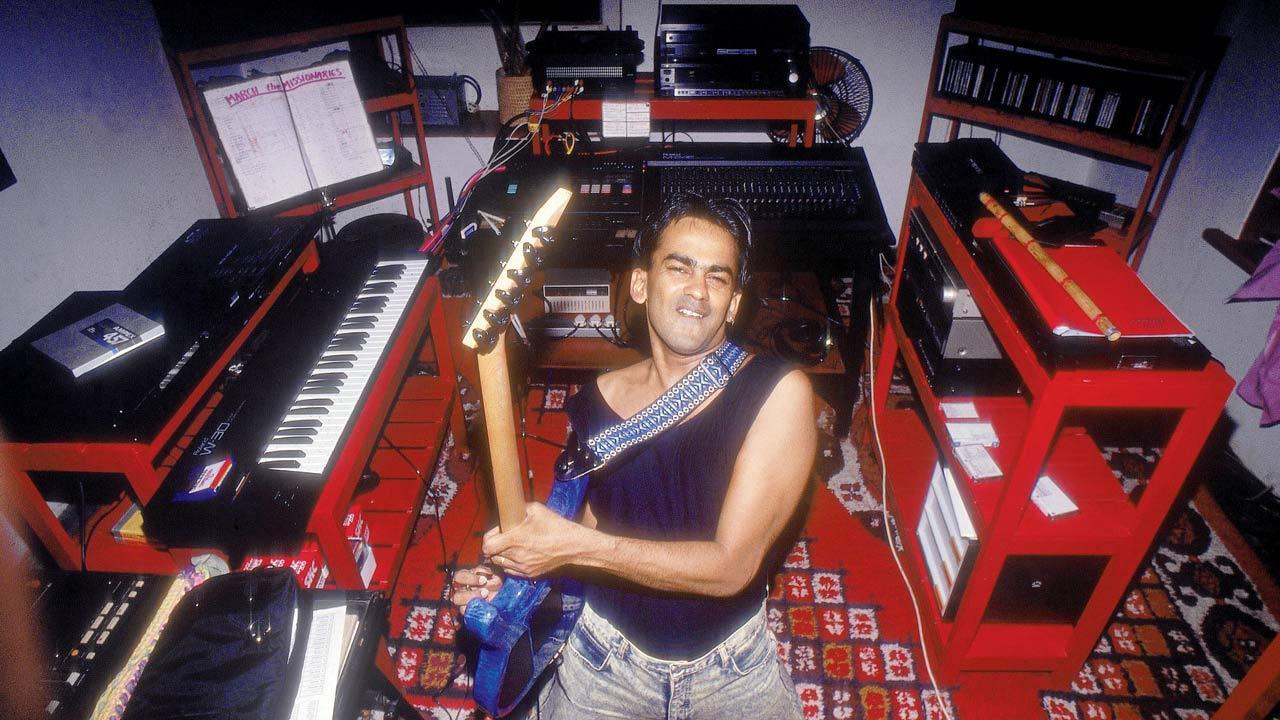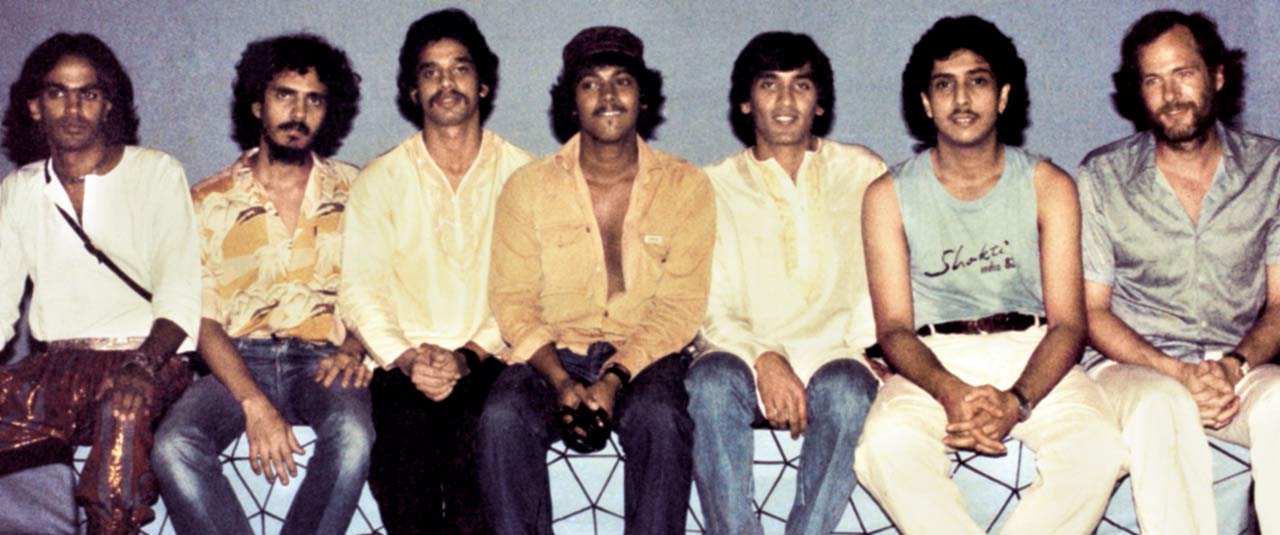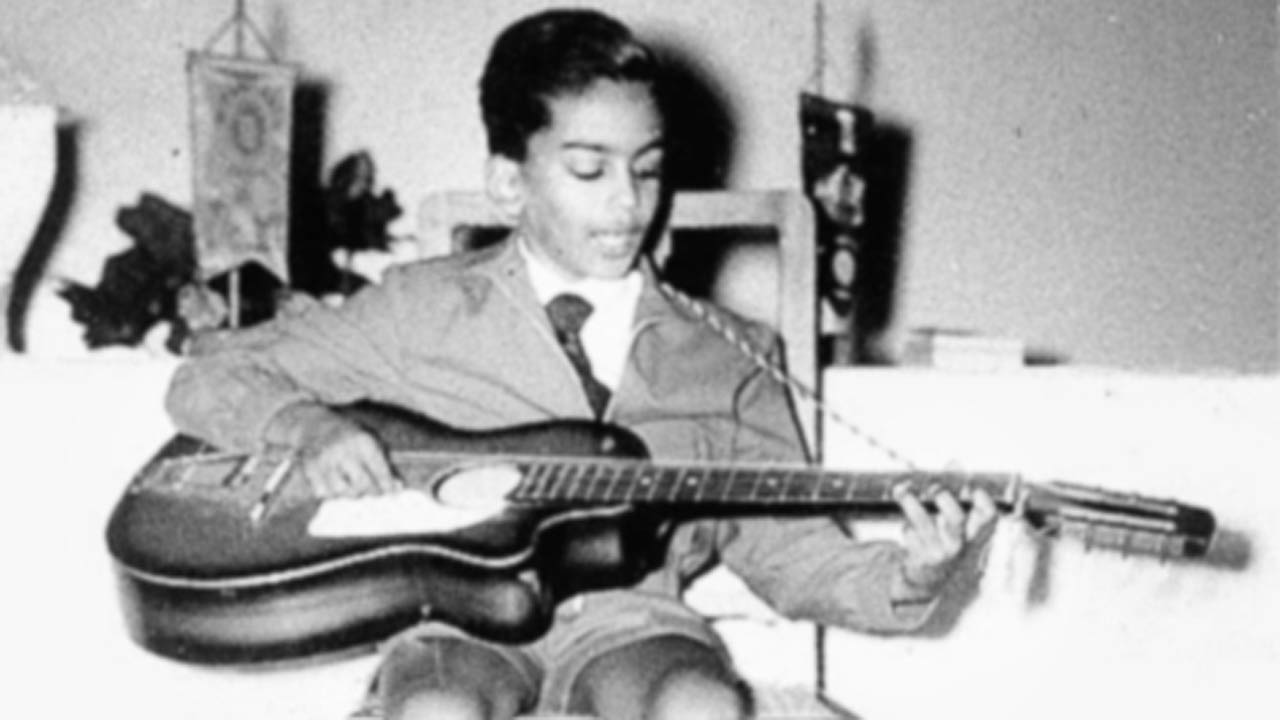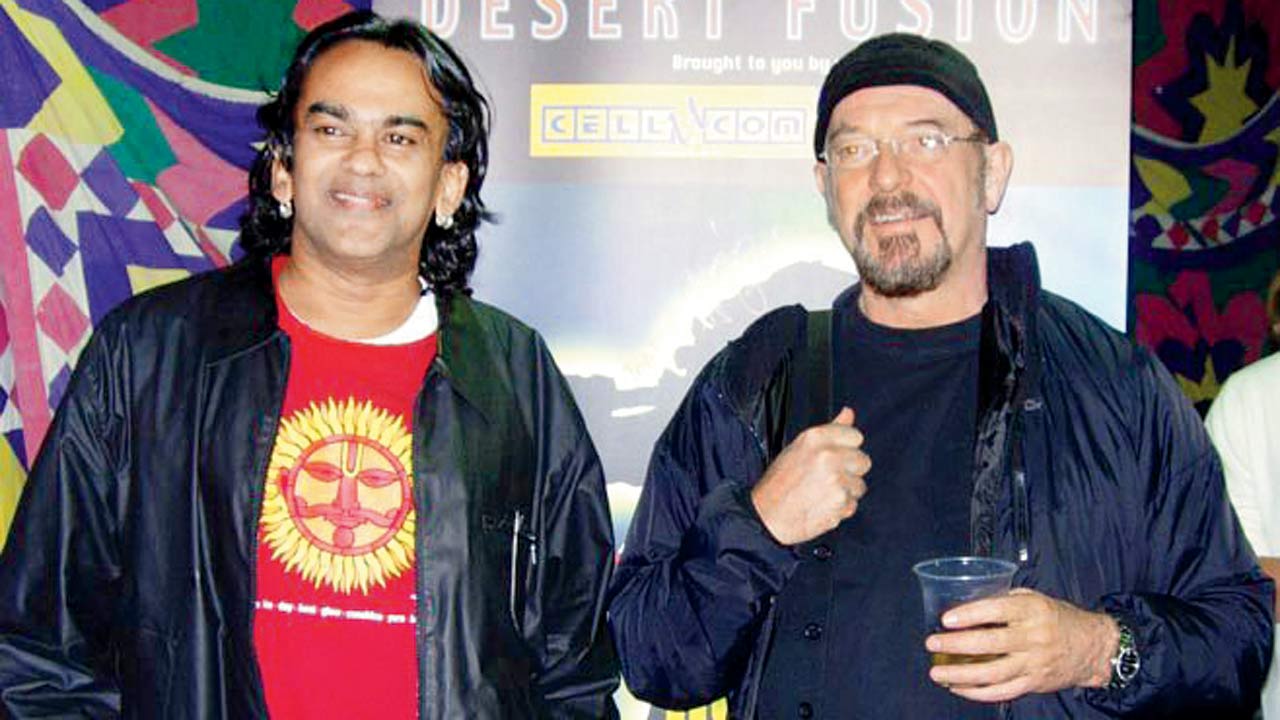Unabashedly honest, Remo Fernandes’ biography celebrates an illustrious indie music career free of Bollywood and a man who dared to write his own script

A file picture of Remo Fernandes dated 1990. Pics/Getty Images And Remo Fernandes, Harpercollins, India
When we dial Remo Fernandes on his landline at his Siolim residence, we encounter disturbance in the audio. “It’s been pouring all day. Can you hear the pitter-patter?” Goa’s indie music veteran asks.
We can. But it’s the familiar voice at the other end that makes us swing back to the 1980s with a smile. On our black-and-white TV set, a Goan musician dressed in funky attire was making the audience groove to, “Graham Bell, Graham Bell/ You’re dead and it’s just as well/But if you saw the phones in India/You’d jump into the well.” It’s serendipitous then that a landline is the connector for this telephonic interview.
 Infinite Fusion, the live band with whom he performed. Backstage with celebrated musicians (left to right) Remo (vocals, guitar and flute), Dinsha Sanjana (keyboards), Fazal Qureshi (tabla), Miles Perry (bass), Rajesh Jhaveri (sitar), Ranjit Barot (drums), Dallas Smith (saxophone and lyricon)
Infinite Fusion, the live band with whom he performed. Backstage with celebrated musicians (left to right) Remo (vocals, guitar and flute), Dinsha Sanjana (keyboards), Fazal Qureshi (tabla), Miles Perry (bass), Rajesh Jhaveri (sitar), Ranjit Barot (drums), Dallas Smith (saxophone and lyricon)
Ode to Graham Bell was part of a playlist where Indian pop musicians in the early days of the indie music movement performed for the Aid Bhopal concert to raise funds for survivors of the Union Carbide tragedy of December 1984. The grainy transmission, courtesy Doordarshan (DD), hardly mattered to school-goers like us. It was our first taste of a live gig where Indians sang in English. We realised that there could be a musician beyond Michael Jackson, Prince and Madonna, and he sounded good.
“We had some decent programming for music and films on DD back then,” Remo agrees. In fact, large sections in his just-released self-titled biography (HarperCollins India) act as a timeline for India’s independent music movement. Shows like Pop Time introduced Indians to desi pop and rock. By the early 1990s, satellite TV had arrived. Things were looking up. “The music video gave us two things—exposure to Western artistes, and wider accessibility to our own music. Before that, we’d be unsure if our music was distributed evenly across India. Music videos on Channel V and MTV did the trick. It was a golden era for Indi-pop. Then, Bollywood got wise and began to rope in the same artistes for films. Some of us sang those tunes, but kept our identity intact; others didn’t. It was far more lucrative,” he reasons. Case in point was his jugalbandi with Juhi Chawla for a popular cola brand that took him to unknown corners of India. Remo admits that he was lucky to have worked with some of the best minds across art and commercial cinema, whether Shyam Benegal (Trikal) or AR Rahman (Humma, Humma; Bombay). “Here, all avenues of art appear to have been taken over by Bollywood. Some of our finest poets and dancers are working for them.” Remo is proud he didn’t take the Bollywood route. He writes in the book how his father lost his cool just once about his choice of career, despite being supportive of the fact that he chose to ditch his architecture degree [Sir JJ School of Architecture], busk and back-pack across Europe and North Africa. Later, as fame and money came Remo’s way, he admitted to his wife with pride that his son had become rich and successful.
 Playing at the Cadbury Amateur Hour for Radio Ceylon in 1963, at age 10
Playing at the Cadbury Amateur Hour for Radio Ceylon in 1963, at age 10
In fact, Remo’s childhood seems straight out of Kevin Arnold’s life in The Wonder Years—a secure, happy life surrounded by a loving family, friends and music in beautiful Panjim. “I feel lucky. Even if there was disagreement, we’d never break communication,” he says recalling how on his return from Bombay as a student, he told his parents that he had stopped attending Sunday mass. “You read about these episodes where families reunite only at someone’s funeral. That was never the case back then. And it wasn’t just about family. As Panjimites, we knew each other, and went all out to help.” There are instances that reflect the simplicity of the time. “I call it the age of innocence,” he says, referring to when as a teen, he brought home marijuana to show his parents, who were curious. “There was ignorance about ‘drugs’. At our shows, some of them sponsored by Simla Cigarettes, after handing over complimentary packs, they would tell us that we were too young to smoke,” he laughs. “Now, we are suspicious of even the food we eat.”
He admits that music has always been riddled with danger. “The owners of venues always offer you a drink before the show. I cannot imagine any other profession where this happens. You are surrounded by vices. Back in the 1970s, everybody experimented with drugs. In Bombay, it was freely available around Colaba, and it was a cool thing to try. In Goa, many from my generation died due to drug overdose. It affected our youth,” he recalls. Years later, Remo would become the poster boy for Goa’s Anti-Drugs Campaign, composing hard-hitting tracks like, Pack that smack.
 With Ian Anderson of Jethro Tull. Remo considers this one of his most memorable meetings
With Ian Anderson of Jethro Tull. Remo considers this one of his most memorable meetings
As an architecture student in Bombay, Remo admits he tried it all—drugs, segwaying between multiple lovers, and slumming it in the big, bad city. He was the hipster musician, who got introduced to the Bhagavad Gita from where his discovery of Hinduism began. But Bombay wasn’t for him. Flood-prone Love Lane in Mazgaon
and the mosquito-infested hostel in Bandra East, crowded buses and local trains were an irritant for the Goenkar.
But the next time he came to Mumbai, it was as a popular musician. “From my first visit student to later, where I moved around in chauffeur-driven cars and lived in five-star hotels, I saw things differently. Bombay is perhaps the only Indian city that exudes industry in every slum and gully. I noticed now that beneath a shanty’s roof, there were people earning money, they were industrious. This perspective cleared my mind.” He paid a hat-tip to the city in the track, Bombay City: Bom Bom Bom Bom Bombay/They say you’re going to blow away/But I know you won’t, I know you’ll stay/Alive and kicking till Judgment Day.

He is glad the book is finally out since he took a six-year break in between writing. He admits that his literary agent Hemali Sodhi wasn’t aware of this detail when she received the first few chapters. “But the feedback I received was positive; I was relieved that the gap hadn’t affected my writing. But, self-editing was tough. How do you fit your life into a hundred thousand words?” He credits his editors for being accommodating.
Remo wrote the final pages in January 2021, bang in the middle of the lockdown. “I’m leading a peaceful semi-retired life with Zenia between Goa and Porto, doing the odd show, and making music in both studios,” he says. Yet, there is one production that Remo yearns to complete. It’s a precious score for the modern opera, Teresa & The Slum Bum, created after an inspired meeting with Mother Teresa in Kolkata. “That might happen in the future, but this felt like the right time to end my biography.”
Wise words from Remo
Find your own style. Imitation is a great school of learning; but after doing that, please find your voice. Make your own version of the song, even if it is a cover. If it is a rock song, change it to a bluesy one, or give it a Latino beat. Ensure you tweak the instrumentation; otherwise why would someone listen to your music?
 Subscribe today by clicking the link and stay updated with the latest news!" Click here!
Subscribe today by clicking the link and stay updated with the latest news!" Click here!










